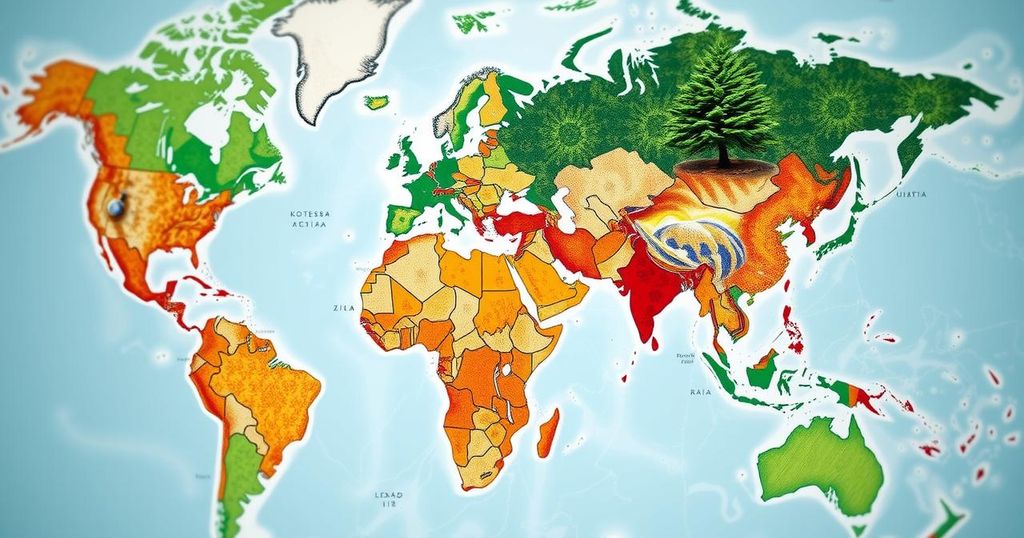Climate-Vulnerable Nations Advocate for Credit Rating Reforms to Foster Resilience
A coalition of climate-vulnerable nations is advocating for reforms in credit rating systems to account for climate resilience initiatives. Current ratings primarily focus on economic threats from climate change and often neglect the proactive steps taken by these nations. This oversight limits investment opportunities for Small Island Developing States. The reforms are crucial for achieving the $1.3 trillion climate finance target slated for the 2025 summit in Spain.
A coalition of nations particularly vulnerable to climate change has urgently called for reform of the existing credit rating system to include metrics that account for climate resilience efforts. This demand was particularly highlighted during discussions at a UN assembly held in New York. The current methodologies employed by prominent rating agencies, such as Moody’s and S&P Global, tend to emphasize the economic threats posed by climate change while neglecting proactive initiatives taken by these nations to enhance their resilience.
This oversight is especially detrimental for Small Island Developing States (SIDS), such as Cuba and the Maldives, which are disproportionately affected by climate-related events and often receive sub-investment or ‘junk’ ratings. Such classifications severely impede their ability to attract necessary investments, thereby exacerbating their vulnerabilities. Advocates argue for a transformative approach in credit ratings that weighs both inherent risks and the proactive measures implemented by these nations. With the backdrop of the ambitious $1.3 trillion climate finance target set for the upcoming finance summit in Spain in 2025, this reform is seen as critical. Moreover, the emergence of an African credit ratings agency may offer a more equitable evaluation and impact on the assessment landscape.
The article highlights a pressing issue faced by climate-vulnerable countries regarding the existing credit rating systems. As discussions at a UN assembly reveal, these nations are pushing for a reevaluation of how credit ratings are assigned, emphasizing the need for recognition of climate resilience measures. Current ratings, focused predominantly on the economic threats stemming from climate change, fail to acknowledge the proactive efforts these nations are undertaking to combat climate impacts. This systemic oversight can have profound implications for investment opportunities in regions that are pivotal for global sustainability.
The call for reform in credit rating methodologies among climate-vulnerable nations signifies a critical shift towards recognizing sustainability efforts in global finance. By incorporating climate resilience into credit evaluations, these reforms aim to provide developing nations with fairer access to investment opportunities that are essential for their sustainable development. Advocating for a more equitable financial landscape aligns with broader goals of empowering vulnerable nations and reshaping international financial policies to promote climate resilience.
Original Source: finimize.com




Post Comment